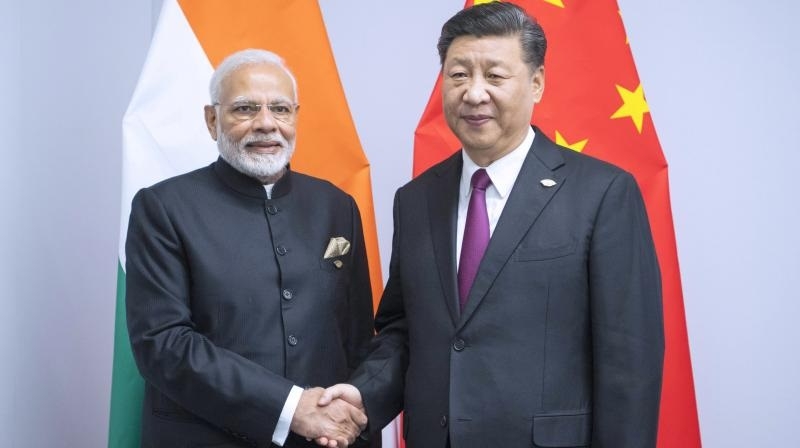EXTENDING TIES
| Date :11-Oct-2019 |

THE informal summit between Prime Minister Mr. Narendra Modi and Chinese President Mr. Xi Jinping in Mamallapuram from October 11 to 12 will be one of the most important bilateral events of the year for both the countries. Since the first such meeting in Wuhan in April 2018, both the Asian powers have marched on in their own aggressive ways to become focal points in international geopolitics. The Mamallapuram summit provides both India and China a wonderful opportunity to further the spirit of Wuhan meeting and build healthy bilateral relations to revive the Asian community specially in the wake of the shifting political and economic fences in the West. India’s choice of the coastal city of Mamallapuram for the informal summit is quite symbolic, for, it showcases the country’s history as a maritime power in the Indian Ocean region. Beyond the optics, India will be keen on seeking strategic understanding with China on many issues of bilateral and global importance including security and trade. Despite the long-standing border skirmishes and repeated aggressive posturing by the Chinese forces, India has been successful in holding its ground. Through larger diplomatic engagements New Delhi has even managed to make Beijing realise the importance of good bilateral relations for a healthy future.
Mamallapuram gives both the powers to overcome some historical inhibitions and forge a strong partnership on bilateral, regional and global issues. As per the agenda, trade, political relations and anti-terror front will dominate the discussions between Mr. Modi and Mr. Jinping. It is a wonderful chance for India to push some of its diplomatic demands as the meeting comes against the backdrop of rising US pressure on China in a bitter trade war. India’s emergence as a growing economy, the temporary slowdown notwithstanding, gives New Delhi the leverage to exhibit its capabilities of becoming a worthy trade partner. Promotion of Indian interests through multiple circles of engagement is a prime necessity in global competition. Summits like Wuhan and Mamallapuram can open a window for deeper understanding of each other’s internal as well as international issues.
Present issues of interest between both the nations are of bigger significance. Trade and security form the core but there are larger subjects like Kashmir, Pakistan, and China-Pakistan Economic Corridor (CPEC). While India has maintained that Kashmir and Article 370 would not be discussed between the two leaders, voices emerging from China may require India to broach the subject and help China further understand the issue. India has maintained that abrogation of Article 370 and bifurcating Jammu & Kashmir and Ladakh into Union Territories is an internal issue which the international powers have duly acknowledged. China had objected to the move and backed its all-weather ally Pakistan.
However, it struck a conciliatory note ahead of the Mamallapuram summit by saying that the issue should be resolved between India and Pakistan through dialogue and consultations. The statement can be seen as China’s acknowledgement of India’s great power status and an important trade partner. India needs to build on this sentiment and seek a course correction on the power asymmetry with China. Apart from border disputes, maritime order and security, India would be eager to discuss the issue of trade deficit which has remained a sore point between both the nations. The problem of dumping of Chinese goods in Indian market needs a permanent solution. So is opening of Chinese markets for Indian generic medicine, a promise Beijing has yet to fulfill. “Dance of the Dragon and Elephant” has become a necessity in Asia to provide the world an alternative trade entity. It all depends on China’s realisation and India’s convincing powers.